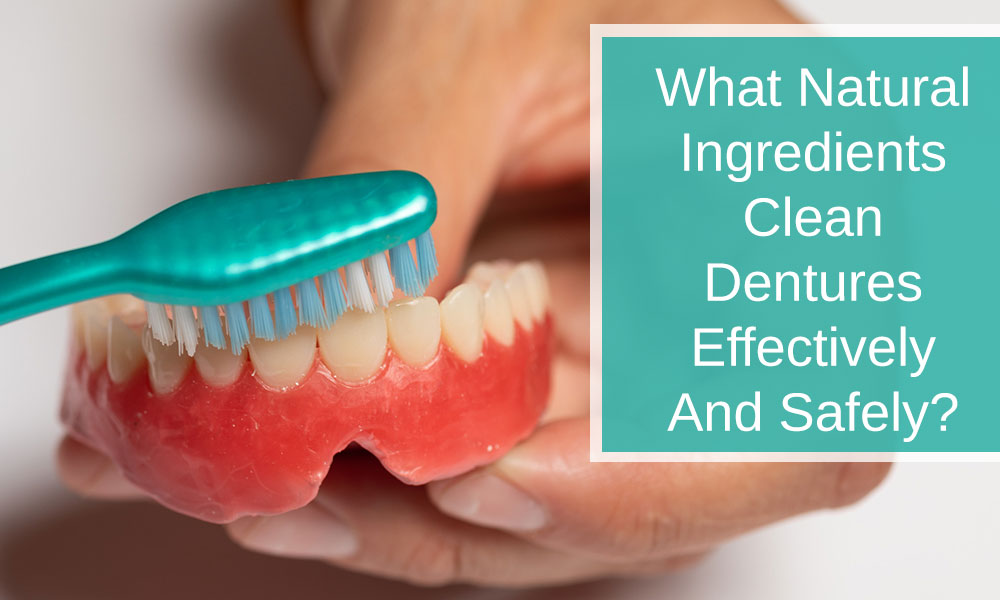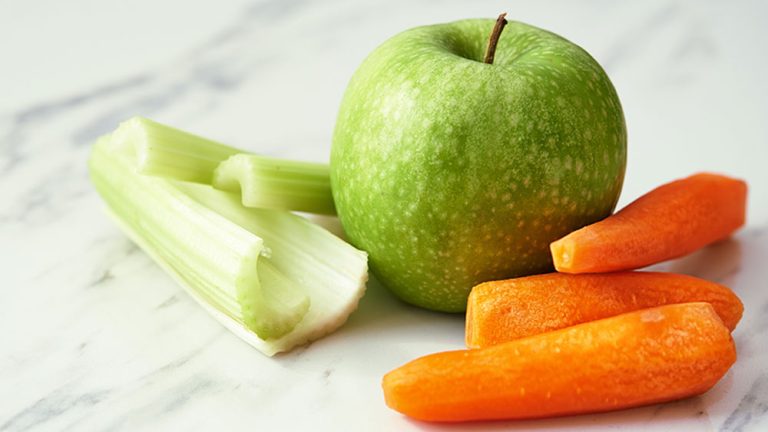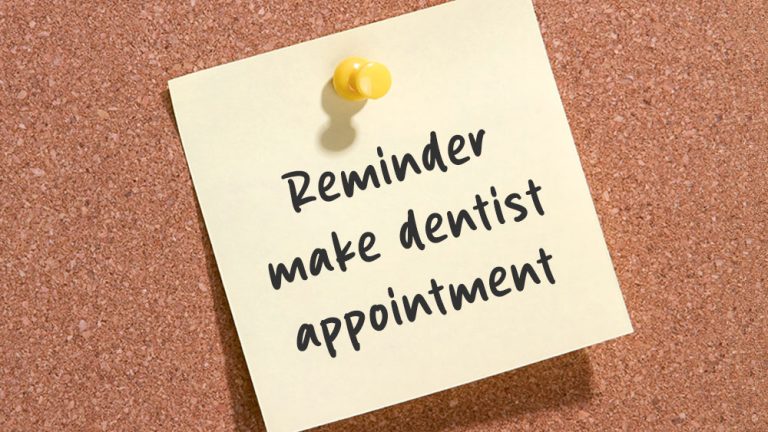
What natural ingredients clean dentures effectively and safely?
Maintaining clean dentures is not only essential for oral health but also for overall well-being. Many individuals are turning to natural ingredients for denture cleaning to avoid the potential risks associated with chemical cleaners. Now we’ll unlock the secrets behind what natural ingredients effectively and safely clean dentures.
The Significance of Natural Denture Cleaning
The choice between chemical and natural denture cleaning goes beyond personal preference. While chemical cleaners may offer convenience, natural denture cleaning has significant benefits. Harsh chemicals in traditional cleaners can cause wear and tear on denture materials, leading to discomfort and reduced lifespan. Natural ingredients, on the other hand, provide a gentler yet effective approach, preserving the integrity of dentures while promoting overall oral health.
Understanding Denture Materials
Different denture materials require specific care to ensure longevity and optimal performance. Common materials include acrylic, porcelain, and metal. Understanding the properties of each material helps in selecting suitable natural cleaning agents. For example, baking soda’s gentle abrasiveness makes it compatible with most denture materials, while white vinegar’s antibacterial properties make it effective against microbial growth. When armed with knowledge about denture materials, individuals can make informed choices for natural denture cleaning.
Baking Soda: The Gentle Scrubber
Properties of Baking Soda
Baking soda, or sodium bicarbonate, is a versatile and cost-effective natural cleaner. Its mild abrasive properties make it ideal for removing stains and plaque from dentures without causing damage. Baking soda also helps neutralize odors, leaving dentures fresh and clean.
Step-by-Step Guide for Using Baking Soda
- Create a Paste: Mix one to two teaspoons of baking soda with enough water to form a paste.
- Apply to Dentures: Gently brush the dentures with the baking soda paste, ensuring even coverage.
- Rinse Thoroughly: After brushing, rinse the dentures thoroughly under lukewarm water to remove any residue.
Baking soda’s effectiveness and versatility make it a staple in natural denture cleaning routines.
White Vinegar: The Natural Antibacterial Agent
Antibacterial Properties of White Vinegar
White vinegar, or acetic acid, is renowned for its natural antibacterial and antifungal properties. This makes it an effective agent for eliminating microbial growth on dentures. White vinegar also helps break down stains and dissolve mineral deposits.
Creating a White Vinegar Soak
- Mix Solution: Combine equal parts of white vinegar and water to create a solution.
- Soak Dentures: Allow the dentures to soak in the solution for 15-20 minutes.
- Rinse Thoroughly: After soaking, rinse the dentures thoroughly under lukewarm water to remove any vinegar residue.
Incorporating white vinegar into a denture care routine offers a natural and antibacterial boost.
Lemon Juice: Freshness and Stain Removal
Citric Acid in Lemon Juice
Lemon juice, rich in citric acid, serves as a natural freshener and stain remover. The acidity helps break down stains and brightens dentures. However, it’s important to use lemon juice cautiously, as excessive acidity can potentially erode denture materials over time.
Using Lemon Juice Effectively
- Create a Mixture: Mix water with a small amount of lemon juice to dilute the acidity.
- Soak Dentures: Soak the dentures in the diluted lemon juice mixture for no more than 15 minutes.
- Rinse Thoroughly: After soaking, rinse the dentures thoroughly to remove any residue.
Lemon juice provides a natural alternative for individuals seeking freshness and stain removal in their denture cleaning routine.
Activated Charcoal: Impurity Absorption
Impurity-Absorbing Properties of Activated Charcoal
Activated charcoal is known for its ability to absorb impurities and toxins. In denture cleaning, activated charcoal can help remove surface stains and bacteria, contributing to a cleaner and fresher feel.
Creating an Activated Charcoal Paste
- Mix Ingredients: Combine activated charcoal powder with a small amount of water to form a paste.
- Apply to Dentures: Gently brush the dentures with the activated charcoal paste.
- Rinse Thoroughly: After brushing, rinse the dentures thoroughly to remove any charcoal residue.
Activated charcoal offers a natural detoxifying element in denture cleaning routines.
Tea Tree Oil: Antimicrobial Efficacy
Antimicrobial Properties of Tea Tree Oil
Tea tree oil possesses natural antimicrobial properties, making it effective against bacteria and fungi. It helps combat microbial growth on dentures, promoting a hygienic environment. Tea Tree Oil is useful as an effective home remedy for denture hygiene.
Incorporating Tea Tree Oil in Denture Care
- Dilute Tea Tree Oil: Mix a few drops of tea tree oil with water to dilute its concentration.
- Brush Dentures: Gently brush the dentures with the diluted tea tree oil mixture.
- Rinse Thoroughly: After brushing, rinse the dentures thoroughly under lukewarm water.
Tea tree oil provides a natural and aromatic addition to denture cleaning, ensuring effective antimicrobial action.
Combining Natural Ingredients for Optimal Cleaning
Experimenting with combinations of natural denture cleaning ingredients can enhance their effectiveness. However, it’s critical to ensure compatibility between ingredients to avoid potential reactions. Here are some safe and effective combinations:
- Baking Soda and White Vinegar Soak:
- Combining the gentle scrubbing action of baking soda with the antibacterial properties of white vinegar provides a comprehensive cleaning experience.
- Lemon Juice and Activated Charcoal Paste:
- Mixing the stain-removing abilities of lemon juice with the impurity-absorbing properties of activated charcoal offers a dual-action approach to denture cleaning.
- White Vinegar and Tea Tree Oil Rinse:
- Blending the antibacterial prowess of white vinegar with the antimicrobial efficacy of tea tree oil creates a potent rinse for maintaining a hygienic denture environment.
Exploring these combinations allows individuals to tailor their natural denture cleaning routine to specific needs.
Dos and Don’ts of Natural Denture Cleaning
Dos:
- Consistent Use of Natural Ingredients:
- Incorporate natural ingredients regularly into your denture cleaning routine for optimal results.
- Choosing Ingredients Compatible with Denture Materials:
- Consider the material of your dentures when selecting natural cleaning agents to prevent damage.
- Allow Proper Soaking Time:
- If a remedy involves soaking, adhere to the recommended duration for effective cleaning.
Don’ts:
- Avoid Harsh or Abrasive Natural Substances:
- Refrain from using natural ingredients that may be overly abrasive and could damage denture materials.
- Neglect Regular Cleaning Habits:
- Even with natural remedies, maintain a consistent schedule for cleaning to ensure ongoing denture hygiene.
Adhering to these dos and don’ts ensures the effectiveness of natural denture cleaning while preserving the integrity of dentures.
Tips for Tailoring Natural Denture Cleaning to Specific Needs
Individuals may have specific concerns related to their dentures, such as stains, odor, or plaque. Tailoring natural denture cleaning to address these specific needs involves adopting targeted approaches:
- Stain Removal Tips:
- For stubborn stains, consider increasing the frequency of cleaning or using a combination of lemon juice and activated charcoal for enhanced stain removal.
- Odor Control Strategies:
- To combat denture odor, focus on incorporating ingredients with natural freshening properties, such as lemon juice and tea tree oil.
- Plaque Prevention Techniques:
- For plaque prevention, establish a consistent cleaning routine and consider using a combination of baking soda and white vinegar to address both bacterial growth and surface buildup.
Customizing natural denture cleaning based on individual needs ensures a personalized and effective approach to oral care.
Frequently Asked Questions (FAQs) About Natural Denture Cleaning
Can I use these natural ingredients daily?
Yes, natural ingredients can be used daily for denture cleaning. However, it’s essential to monitor the condition of your dentures and adjust the frequency based on your individual needs.
Are there any side effects of natural denture cleaning?
When used as directed, natural denture cleaning typically has minimal side effects. However, individuals with specific allergies or sensitivities should exercise caution and consult with a healthcare professional if concerns arise.
Can I combine multiple natural ingredients?
While some natural ingredients can be combined for enhanced effectiveness, it’s vital to ensure compatibility. Avoid mixing ingredients with contrasting chemical properties, as this may diminish their individual benefits.
How long should I soak my dentures in these natural solutions?
The recommended soaking duration varies depending on the natural solution used. Generally, 15-20 minutes is sufficient for effective cleaning. However, always follow specific guidelines for each ingredient.
How Long do you Have to go to School to be a Dentist?
Becoming a dentist typically requires completing a four-year undergraduate degree followed by four years of dental school. In total, aspiring dentists can expect to spend approximately eight years in formal education to earn the necessary qualifications for dental practice.
Key Takeaways
Embracing the power of natural ingredients for denture cleaning is not just a trend; it’s a sustainable and effective approach to oral care. From the gentle scrubbing action of baking soda to the antibacterial prowess of white vinegar and the freshness of lemon juice, natural ingredients offer a diverse toolkit for denture maintenance. By understanding the properties and applications of these ingredients, individuals can unlock the secrets to clean dentures effectively and safely, promoting a healthier smile and improved overall well-being.



